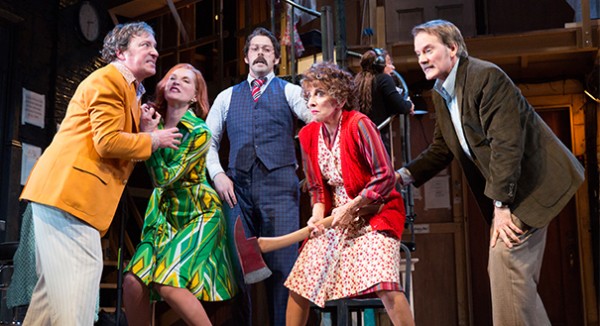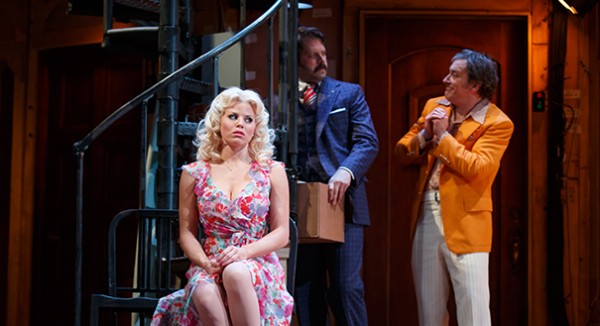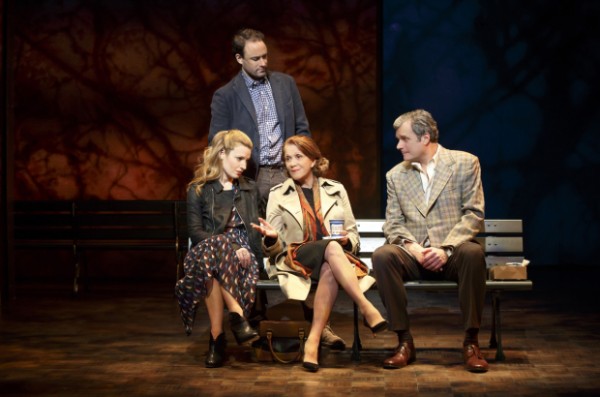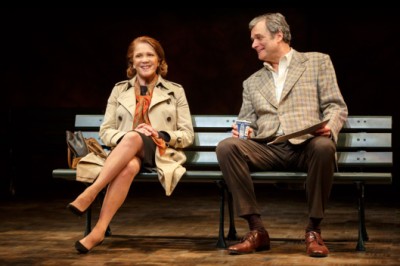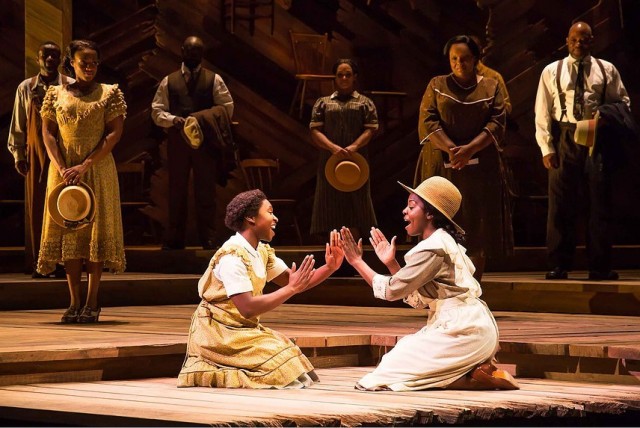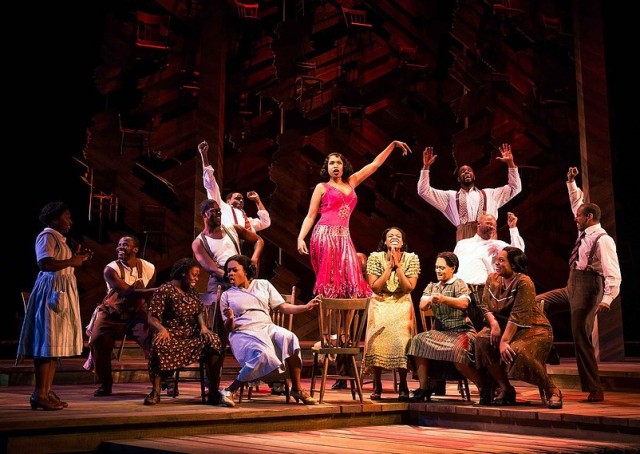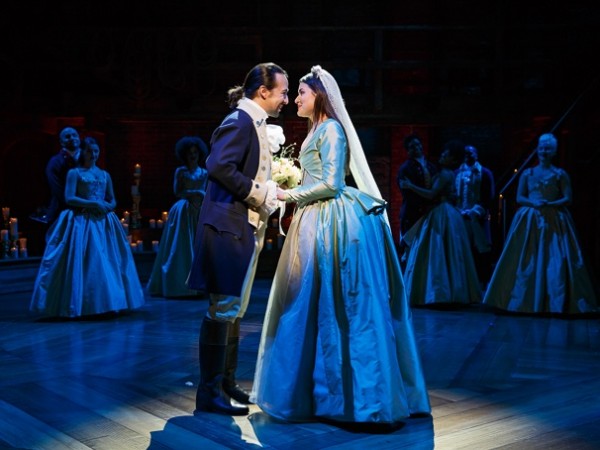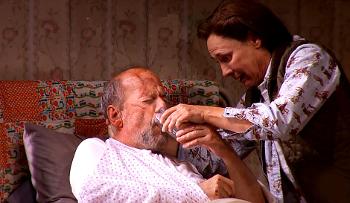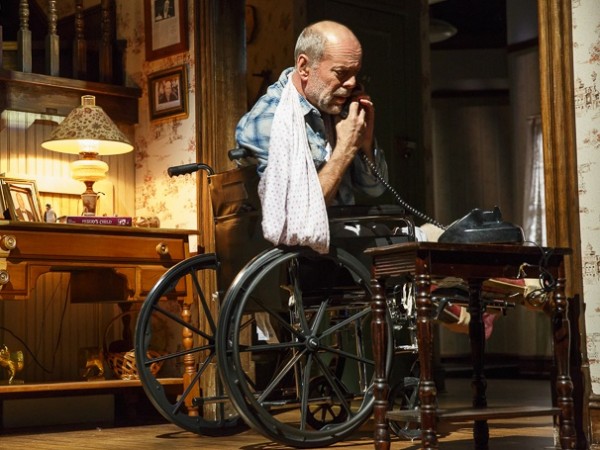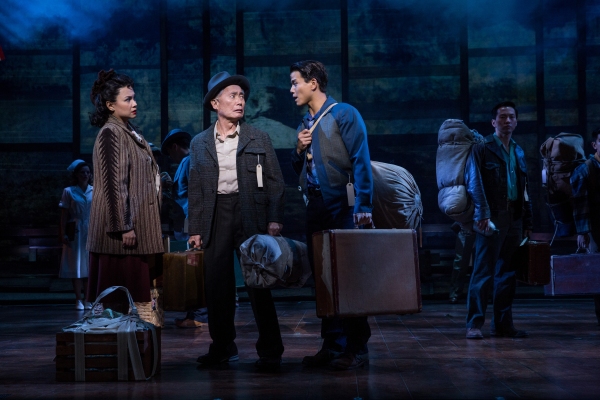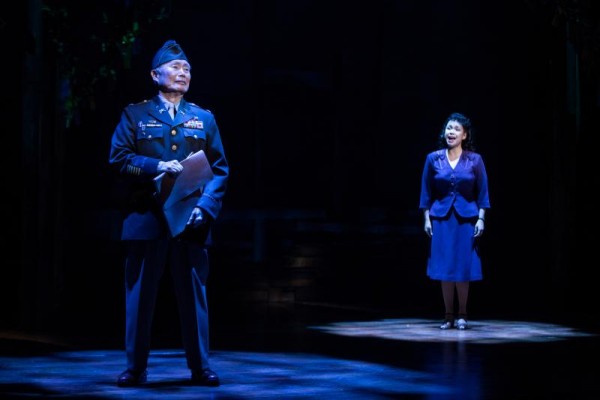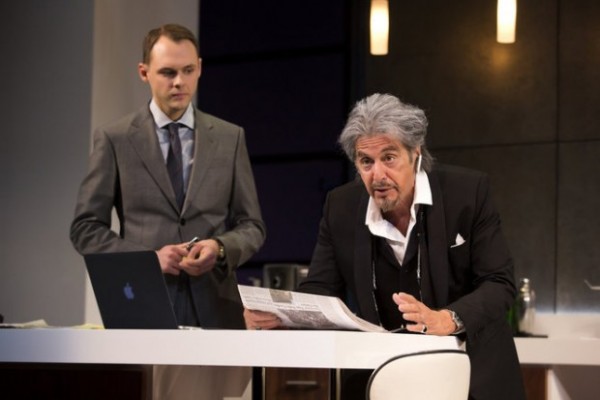
Christopher Denham and Al Pacino star in David Mamet’s latest Broadway show, the critically reviled CHINA DOLL (photo by Jeremy Daniel)
Gerald Schoenfeld Theatre
236 West 45th St. between Broadway & Eighth Aves.
Through January 31, $92-$149.50
www.chinadollbroadway.com
Is China Doll really as bad as all that? “If you can abide it / let the hurdy-gurdy play / Stranger ones have come by here / before they flew away,” Jerry Garcia sings in the 1973 Grateful Dead song “China Doll,” adding, “Take up your china doll / It’s only fractured / and just a little nervous / from the fall.” Robert Hunter’s lyrics are rather apt for David Mamet’s new Broadway play, which closes January 31 after a critically battered run. Reports during previews claimed that audience members were leaving in droves during intermission, that star Al Pacino, who has appeared in such previous Mamet works as American Buffalo and Glengarry Glen Ross, needed help remembering his lines, and that Mamet was still tinkering with the script, resulting in a delayed official opening. The two-hour play eventually opened on December 4 to scathing reviews. In the New York Times, Ben Brantley called it “saggy,” decrying, “Now please cue sound effects of chalk scratching on countless blackboards and the ping, ping, ping of an endlessly dripping faucet, and you have some idea of what Mr. Denham must be going through night after night after night,” referring to Pacino’s costar, Christopher Denham. In New York magazine, Jesse Green declared, “Al Pacino is not an actor of much breadth but he stakes a narrow territory deeply, and that can be brilliant to watch onstage. China Doll, his shaky new Broadway vehicle, by David Mamet, offers flashes of that brilliance between long mucky passages in which he appears to be hunting for the narrative, if not the next line.” In the New York Daily News, Joe Dziemianowicz chimed in, “Some actors can make reading the white pages fascinating. Pacino fails to make phone calls anything but drudgery.” Rex Reed was rather unkind in the New York Observer, proclaiming, “David Mamet’s ghastly China Doll is the worst thing I’ve seen on a professional New York stage since the ill-fated Moose Murders. On the disaster meter, it might be even worse. Al Pacino walks like an anchovy and looks like an unmade bunk bed.” And the West Coast added its thoughts as well, with Charles McNulty noting in the Los Angeles Times, “The Anarchist, Mamet’s last original play to debut on Broadway, sounded like two typewriters clacking at each other. China Doll is more of a drone.” So it was with bated breath that we attended one of the show’s final performances, hoping that maybe by this time, the play, and Pacino himself, had found its groove. Of course, the reviews had little effect on the box office, as theater lovers and tourists continued to pour in to see one of the best actors in Hollywood history, the beloved Oscar-, Tony-, and Emmy-winning star of The Godfather, Scent of a Woman, Serpico, Dog Day Afternoon, Scarface, and Glengarry Glen Ross.
Entering the theater lobby, we were greeted with large photos of George Soros, the Koch brothers, Warren Buffett, Carl Icahn, and other real-life billionaires, alongside Mickey Ross, the character Pacino plays in China Doll. Ross is an aging, self-obsessed, disheveled mess of a man who is in the midst of negotiating a way out of having to pay five million dollars in taxes for a new private plane, which he is purchasing primarily for his trophy fiancée, the never-seen Francine Pierson. He has no illusions about who he is and what he is doing; he is fully aware that he is an aging, self-obsessed, disheveled mess of a man with a trophy fiancée. Ross spends most of the play on his Bluetooth, arguing about taxes, legal and political shenanigans, and airplane registration numbers, while both chastising and teaching his assistant, Carson (Denham), who sees Ross as a mentor. The first act is not so bad; Pacino’s stumbling, slow-talking style seems fitting for his character, Denham (The Unavoidable Disappearance of Tom Durnin, The Lieutenant of Inishmore) is a solid sounding board for Pacino, and the plot, about a nasty, greedy one-percenter essentially looking to die in the arms of a beautiful young woman, is not quite wholly annoying yet. But yes, it does indeed get there in the woeful second act, during which you just want to run onstage, grab Pacino’s earpiece, stomp on it, and tell him to shut the hell up already. It’s hard not to cringe when Ross is on the phone with Francine, placating her no matter what. In many ways, Ross is exactly what’s wrong today with America; Mamet might not have been creating a sympathetic character with the bombastic billionaire, but we don’t completely despise him either. Instead, we don’t care about Mickey Ross and his ridiculous dilemma, which is much, much worse. Not even Tony-winning director Pam MacKinnon (Clybourne Park, Who’s Afraid of Virginia Woolf?) and Tony- and Emmy-winning set designer Derek McLane (The Pajama Game, Anything Goes) can bring any level of warmth to this cold, unfeeling drama. China Doll might actually work in a condensed one-act version; but as it is, it grows ever-more intolerable as it goes on. But again, critical reviews have had no impact on this very popular show, as evidenced by curtain-opening applause for Mr. Pacino in both the first and second acts as well as a rapturous standing ovation at the end. “I will not condemn you / nor yet would I deny / I would ask the same of you / but failing will not die,” Garcia sings in “China Doll.” If only we could say the same for Mamet and Pacino’s latest collaboration.
